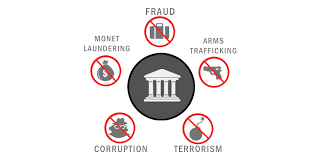It was a thing of the past when customers had to visit physical offices to carry out the work operations. However, these days consumers from opening a new account in a bank to performing any financial transaction, do every little task digitally. Consumers of any age can take advantage of automated services very easily. To offer enhanced consumer services and to maintain high standards, financial institutions and other banks are using new technologies. These tech-driven solutions have also supported imposters to commit financial crimes such as money laundering. EDD banking can curb money laundering that could on the other hand damage the business reputation.
Consequences of Non-compliance with EDD Banking for the Banks
Not following the EDD banking can adversely affect the finance sector. The shortcomings in the regulatory regimes allow the fraudsters to use the security system of financial institutions to carry out illegal activities.
Identity Theft
Financial institutions and banks that do not adhere to EDD banking are at a risk of facing non-stringent security operations. They do not contain data protection measures and henceforth, pave the way for fraudsters to carry out identity theft and data breaches. Moreover, it also impacts the laws enforced on financial institutions. Due diligence for banks is the solution that can secure customers’ data.
Hefty Penalties
Financial institutions and banks that fail to adhere to EDD banking can consequently lead the road toward experiencing hefty fines. The penalties are decided on the basis of transactions performed and the limit of non-compliance with the laws.
Damaged Reputation
Being associated with identity theft, data breaches, money laundering, and terrorist financing not only harms the entire work operations of financial institutions but also negatively impacts their reputation. The banks after sacrificing their security protocols, have to face hard times to regain the trust in the eyes of consumers.
Income loss
The damaged reputation further leads the banks towards experiencing revenue loss. In addition to this, being involved in fraudulent activities can make banks lose their consumers and thus ultimately putting them to fave revenue loss.
KYC and EDD Banking Checks
For financial institutions, KYC (Know your customer) compliance can be assured by performing CDD and EDD to stay in line with AML regulations. It also secures them from imposters.
KYC process due diligence includes EDD banking that provides a higher level of analysis. Of potentially high-risk persons and ultimate beneficial owners (UBOs). EDD banking is a step further in customer due diligence (CDD) that is used to carry out a deeper understanding of identity authentication by getting the consumers’ information and examining their risk groups.
Conventional methods of performing KYC (know your customer) were not complete, thus, e-KYC solutions that financial institutions are implying these days. The e-KYC service makes sure that the ID verification method is performed validly to safeguard banks from experiencing any financial fraud.
FATF’s Risk-Based Approach To Finance Industry
Banks often work with customers that must undergo EDD banking checks. FATF suggested a risk-based method that incorporates “the type and limit of data gathered, the amount of information identified, must be exercised when the consumer risks are great .”
The advantages that EDD banking offers are the following:
- It can be conveniently integrated
- It verifies the customers and the risks associated with them
- Easy to adapt it
EDD Steps Advised by the FATF:
- Gathering additional information to validate IDs in a frictionless way and deploying that data to develop the customer risk assessment
- Performing searches (for instance, IAM) to exhibit the consumers’ threat approach
- Making a report on the customer to show if the individual is involved in any criminal activity
- Verifying the means of money entered by the customer to identify if they are gathered through legal sources
It is inadequate to carry out ID verification for just one time and then avoid it for the rest of the consumer-business relationship. A threat-based protocol that records the process that identifies doubtful activities is still another suggested recommendation from FATF.
Conclusion
Financial institutions are intuitive to face monetary fraud due to the nature of their work. Regulatory bodies have designed laws to assist banks and other financial institutions in fighting money laundering while fulfilling regulatory protocols. EDD banking is the law that aids organizations to carry out AML measures on high-risk profiles. The financial institution task force (FATF) has developed measures to undergo ID checks to reduce the chances of financial fraud.


